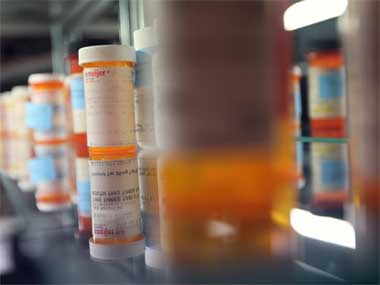London: Statins taken to reduce the risk of heart disease and stroke are also a cheap and powerful cancer-buster, a new study has claimed. The superpills are a cheap and effective drug taken by people to cut their levels of artery-clogging cholesterol and protects them against heart attacks, heart disease and stroke. [caption id=“attachment_495340” align=“alignleft” width=“380”]  Image for representative purpose only. Getty Images[/caption] Researchers from the University of Milan found that taking statins on a regular basis lowered the chance of developing a tumour by more than 40 percent, compared to people who were not taking the medication, the Daily Express reported. Scientists have found that taking statins on a regular basis reduces the chance of developing a tumour by more than 40 percent, compared to those not on the pills. The discovery is the latest evidence to hail the benefits of the tablets in tackling cancer and could now play a major role in slashing the death toll from the disease. Experts are already calling for all people over the age of 50 to be routinely prescribed statins to ward off a host of chronic and potentially fatal conditions, even if they are deemed at low risk. They say giving an extra five million people statins would cut heart attacks and strokes by 10,000 a year and save at least 2,000 lives. The latest findings can boost the evidence for their use in tackling cancer, meaning patients could be given them to treat their tumours and even to prevent them from developing. Although previous studies have hinted that statins may help protect against a variety of cancers, the evidence has been inconclusive. Most studies have focused on the potentially effects in protecting against breast and bowel cancer. A daily dose of the cholesterol-lowering tablets has now been shown to dramatically cut the chance of developing deadly liver cancer. The study was published in the European Journal of Cancer Prevention. PTI
The superpills are a cheap and effective drug taken by people to cut their levels of artery-clogging cholesterol.
Advertisement
End of Article
Written by FP Archives
see more


)
)
)
)
)
)
)
)
)



